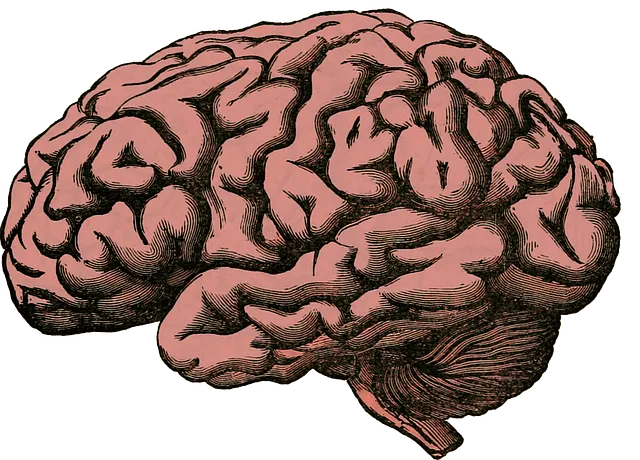Crisis Intervention Teams (CITs) are vital in acute psychiatric emergencies, with trained professionals from law enforcement, paramedics, and mental health services responding swiftly. Organizations like Kaiser Permanente in Boulder actively promote CIT programs guided by Mind Over Matter Principles, emphasizing a person-centered approach that considers cultural nuances. Their training in healthcare provider cultural competency enhances service to diverse communities, while community outreach improves accessibility. The Kaiser Permanente psychiatry phone number Boulder provides immediate psychiatric support, connecting individuals with crisis intervention guidance, empathy building strategies, and trauma support services to stabilize situations and offer ongoing care. Effective CIT training focuses on resilience, self-awareness, and emotional intelligence to enhance decision-making in high-pressure scenarios and provide empathetic, nuanced care during crises.
Crisis intervention teams (CITs) play a vital role in mental health care, providing immediate support during emergencies. With the increasing demand for psychiatric services, effective CIT training programs are essential. This article explores the critical components of these programs, highlighting the importance of specialized resources like the Kaiser Permanente psychiatry phone number Boulder. By understanding CITs’ roles and utilizing available supports, communities can enhance their response to mental health crises.
- Understanding Crisis Intervention Teams: Their Role and Importance in Mental Health Care
- Kaiser Permanente Psychiatry Phone Number Boulder: A Resource for Emergency Support
- Essential Components of Effective Crisis Intervention Team Training Programs
Understanding Crisis Intervention Teams: Their Role and Importance in Mental Health Care

Crisis Intervention Teams (CITs) play a pivotal role in mental health care, especially when it comes to addressing acute psychiatric emergencies. These specialized teams, often comprising of law enforcement officers, paramedics, and mental health professionals, are trained to swiftly respond to individuals in crisis situations. The primary goal is to de-escalate the situation, provide immediate support, and connect the individual with appropriate long-term care.
In Boulder, where access to mental health services is a priority, organizations like Kaiser Permanente have been instrumental in promoting CIT programs. The Mind Over Matter Principles guide these teams, emphasizing a person-centered approach that respects cultural nuances. Healthcare Provider Cultural Competency Training ensures that team members can navigate diverse communities effectively. Moreover, Community Outreach Program Implementation helps in building trust and fostering collaborations, making crisis intervention more accessible and impactful for those in need, especially when seeking support through the Kaiser Permanente psychiatry phone number Boulder residents have access to.
Kaiser Permanente Psychiatry Phone Number Boulder: A Resource for Emergency Support

In moments of crisis, access to immediate psychiatric support can be a life-saving resource. Kaiser Permanente Psychiatry Phone Number Boulder offers exactly that—a dedicated line for individuals seeking emergency mental health assistance. This service is particularly valuable for those who may not have quick access to in-person care or are experiencing severe emotional distress. The professionals on the other end of this line are equipped with Crisis Intervention Guidance, trained to provide timely support and resources to help stabilize situations.
Beyond offering direct assistance during emergencies, the Boulder location also utilizes Empathy Building Strategies and Trauma Support Services to foster a culture of understanding and healing within the community. Their commitment extends beyond the initial call, aiming to connect individuals with ongoing care when necessary, ensuring that those in need are not left unsupported in their time of vulnerability.
Essential Components of Effective Crisis Intervention Team Training Programs

Effective crisis intervention team training programs are designed to equip healthcare professionals with the skills needed to support individuals in distressing situations. These programs should incorporate several key components for optimal impact, especially when considering the unique challenges faced by teams in real-world settings. One of the cornerstone elements is Resilience Building. Training should foster an environment where team members can develop personal resilience, enabling them to handle high-pressure scenarios without burning out.
Additionally, programs must emphasize Self-Awareness Exercises and Emotional Intelligence. By promoting introspection and understanding of one’s emotions, these exercises enhance the team’s ability to empathize with clients. Such self-awareness is crucial when navigating complex crises, as it allows for more nuanced interactions and informed decision-making. For instance, a call center staffed by psychiatrists like those available at the Kaiser Permanente psychiatry phone number Boulder can greatly benefit from this training to handle diverse mental health emergencies effectively and compassionately.
Crisis intervention team (CIT) training programs play a vital role in enhancing mental health care by equipping professionals with essential skills. The article has explored the significance of CITs and outlined key components for effective training, including practical exercises and continuous support from resources like the Kaiser Permanente psychiatry phone number Boulder. By investing in comprehensive training, organizations can better navigate crises and provide timely, compassionate support to individuals in need.






